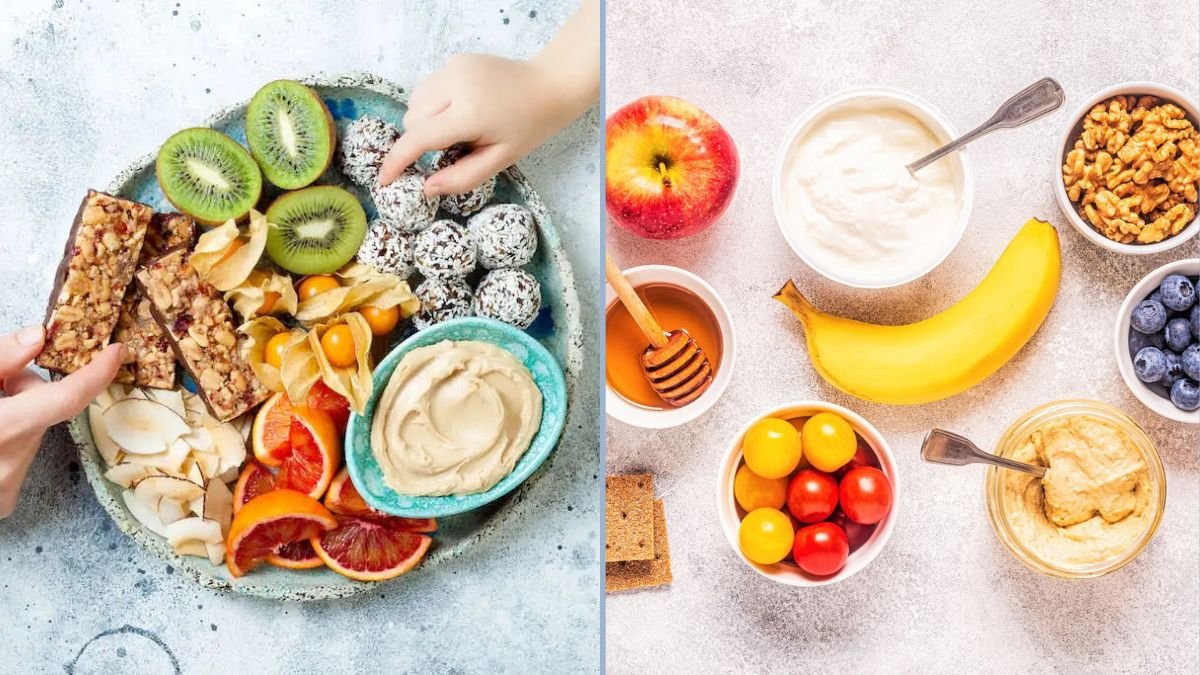Snacking is often seen as a guilty pleasure, but when done thoughtfully, it can be an essential component of a healthy, balanced diet. Smart snacking can help maintain energy levels, stabilize blood sugar, curb overeating at meals, and provide essential nutrients. For vegetarians, snacks can be particularly beneficial in meeting protein, fiber, and healthy fat requirements. This article explores strategies for smart snacking, the role of different macronutrients in satiety, and practical snack ideas to keep you full and satisfied throughout the day.
Understanding Satiety and Smart Snacking
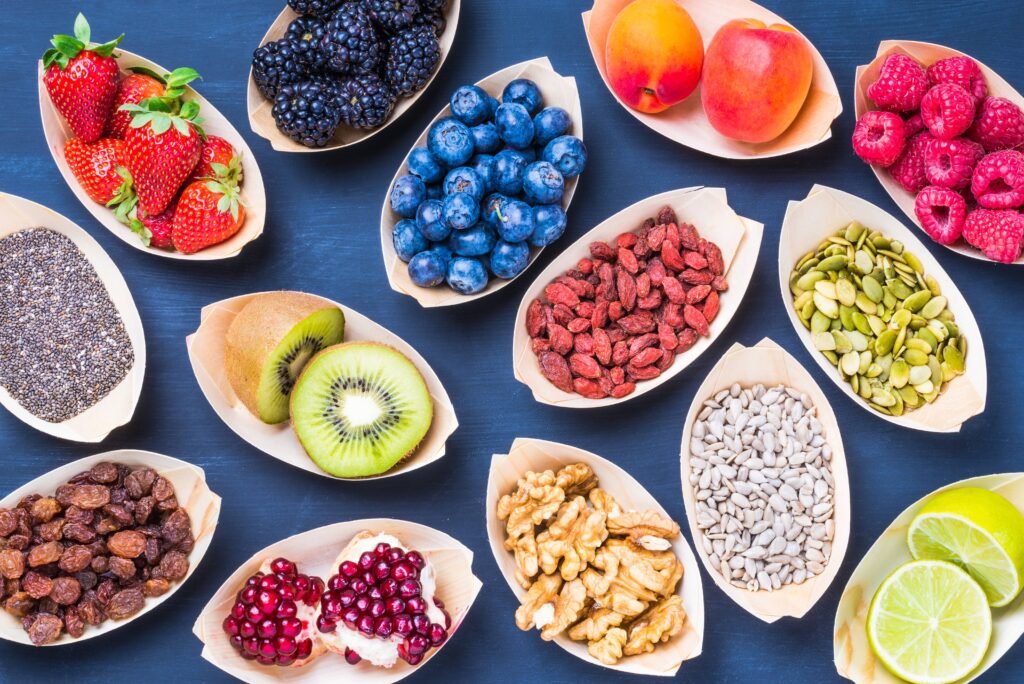
Satiety refers to the feeling of fullness and satisfaction after eating. Snacks that are low in protein, fiber, or healthy fats may satisfy cravings temporarily but leave you hungry again soon after. Smart snacking focuses on nutrient-dense, satiating foods that balance macronutrients, provide lasting energy, and contribute to overall nutrition.
Key Factors That Influence Satiety
- Protein: Slows digestion, supports muscle maintenance, and increases fullness.
- Fiber: Adds bulk to meals and slows the release of energy, stabilizing blood sugar.
- Healthy Fats: Enhance flavor, promote satiety, and help absorb fat-soluble vitamins.
- Volume and Water Content: Foods with high water content, such as fruits and vegetables, increase fullness without excessive calories.
- Low Glycemic Index Carbohydrates: Provide sustained energy, preventing spikes and crashes in blood sugar.
The Benefits of Smart Snacking
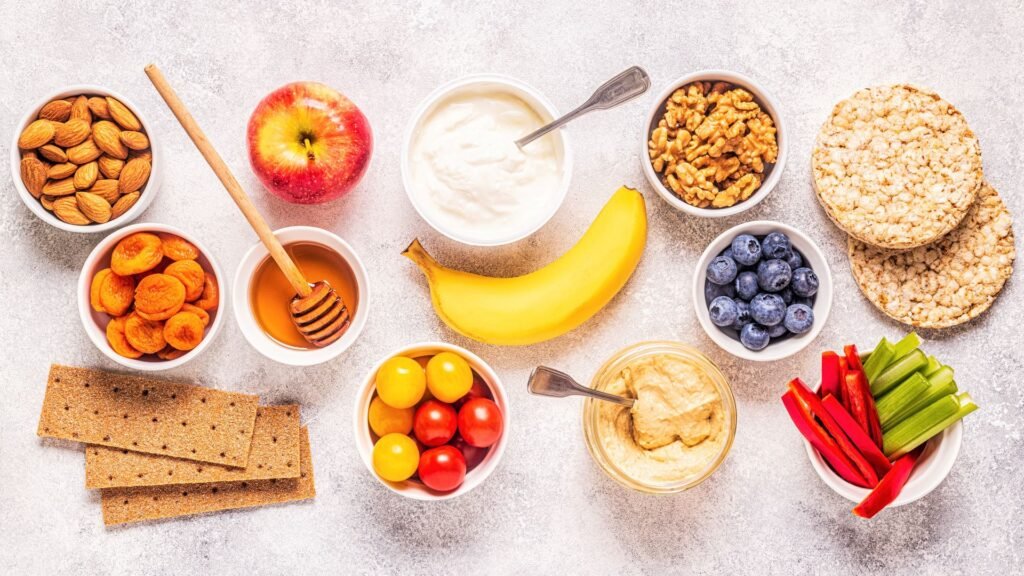
Thoughtful snacking has numerous advantages beyond simply curbing hunger:
1. Supports Energy Levels
Nutrient-dense snacks help maintain energy and focus between meals. Combining complex carbohydrates with protein and healthy fats ensures sustained energy for work, study, or exercise.
2. Prevents Overeating
Consuming satiating snacks can prevent extreme hunger that leads to overeating during meals. This helps maintain a healthy calorie balance and supports weight management.
3. Provides Nutrients
Smart snacks can supplement nutrient intake throughout the day, especially in vegetarian diets where protein, iron, and healthy fats may need extra attention. Nuts, seeds, legumes, and fortified plant-based products provide essential vitamins and minerals.
4. Supports Gut Health
Fiber-rich snacks promote healthy digestion and a balanced gut microbiome, which is linked to improved immunity, mental health, and nutrient absorption.
5. Improves Mood and Focus
Balanced snacks prevent blood sugar dips, which can cause irritability, fatigue, and difficulty concentrating. Including protein, fiber, and healthy fats stabilizes glucose levels and supports cognitive function.
Strategies for Smart Snacking
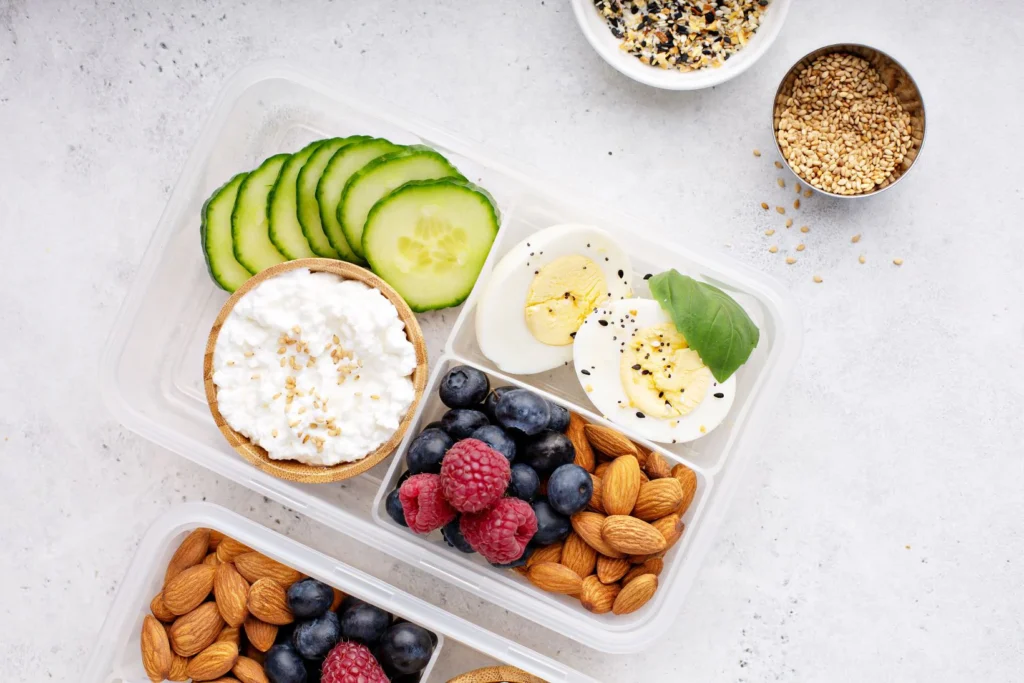
1. Prioritize Protein
Protein-rich snacks keep you full longer and help maintain muscle mass. Vegetarian sources include:
- Nuts and seeds: Almonds, walnuts, cashews, sunflower seeds, pumpkin seeds
- Legumes: Roasted chickpeas or edamame
- Soy products: Tofu cubes, tempeh bites, plant-based yogurt
- Nut butters: Peanut, almond, or cashew butter
2. Include Fiber
Fiber adds bulk, slows digestion, and keeps you satisfied. Include:
- Whole fruits: Apples, pears, berries, oranges
- Raw vegetables: Carrots, celery, bell peppers, cucumber
- Whole grains: Oatmeal, whole-grain crackers, air-popped popcorn
- Legumes and pulses: Lentil-based snacks or hummus with veggies
3. Incorporate Healthy Fats
Fats enhance flavor, satiety, and nutrient absorption. Combine them with protein and fiber for optimal snacking:
- Avocado on whole-grain toast or crackers
- Nuts and seeds mixed with dried fruit (trail mix)
- Nut butters with apple slices or celery sticks
- Coconut yogurt with berries and chia seeds
4. Balance Carbohydrates
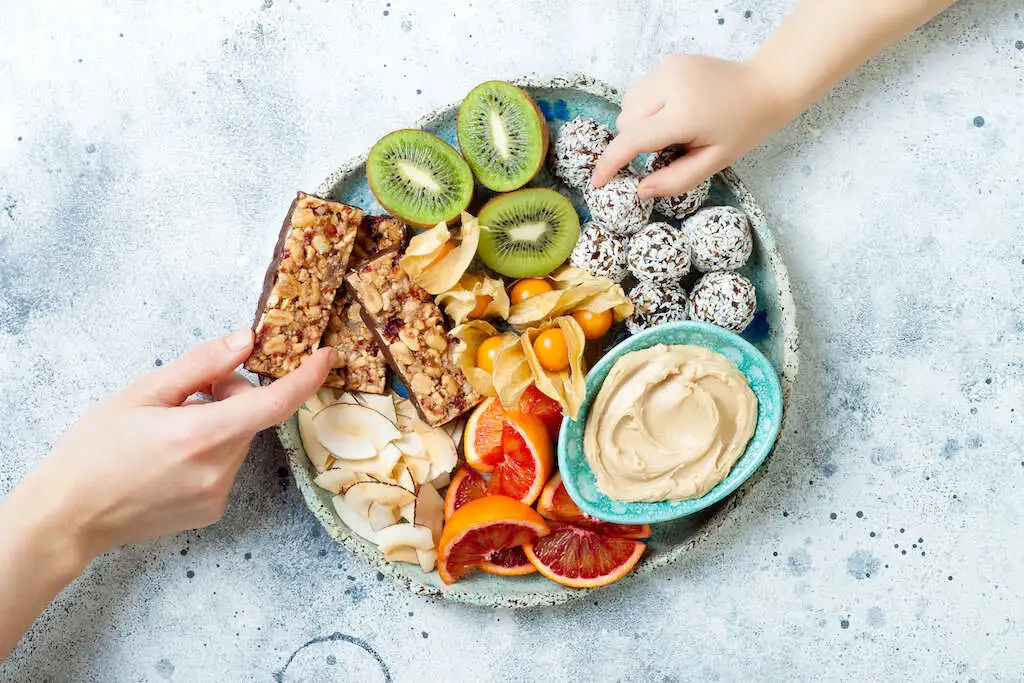
Choose low glycemic index carbs for sustained energy:
- Whole grains: Oats, quinoa, barley
- Fruits: Berries, apples, pears, kiwi
- Legumes: Lentils, chickpeas
- Vegetables: Sweet potatoes, bell peppers, carrots
5. Mind Portion Sizes
Even healthy snacks can contribute to excess calories if portions are too large. Use:
- Small bowls or snack containers
- Pre-portioned servings of nuts, seeds, or dried fruits
- Measuring cups for granola, trail mix, or seeds
6. Hydrate and Combine
Sometimes thirst is mistaken for hunger. Drink water or herbal teas before snacking. Pair liquids with fiber-rich foods for added satiety. For example:
- Celery sticks with hummus and water
- Apple slices with almond butter and green tea
7. Prepare Snacks Ahead of Time
Batch-prepared snacks reduce reliance on processed options:
- Roast chickpeas or make spiced lentil bites
- Portion nuts and seeds in snack bags
- Prepare veggie sticks with hummus
- Make overnight oats or chia pudding for on-the-go snacking
Sample Smart Vegetarian Snacks
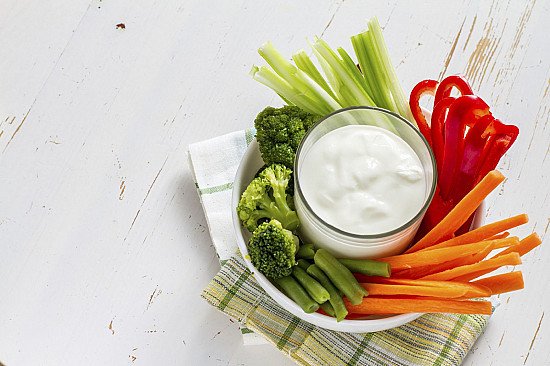
1. Mid-Morning Snack
- Greek-style plant-based yogurt with chia seeds and berries
- Provides protein, fiber, and antioxidants for sustained energy
2. Afternoon Snack
- Roasted chickpeas with paprika and garlic
- High in protein and fiber, satisfying crunchiness prevents mid-afternoon cravings
3. Pre-Workout Snack
- Banana with peanut butter
- Combines quick energy from carbohydrates with protein and healthy fat for lasting fuel
4. Evening Snack
- Whole-grain crackers with avocado and sunflower seeds
- Balances fiber, protein, and fats to curb hunger before dinner
5. On-the-Go Snack
- Trail mix of nuts, seeds, and dried fruits
- Portable, nutrient-dense, and filling without processed sugar
Tips for Making Snacks Satisfying
- Combine macronutrients: Include protein, fiber, and fat for lasting fullness.
- Vary textures and flavors: Crunchy, creamy, sweet, and savory elements enhance satisfaction.
- Focus on nutrient density: Choose foods rich in vitamins, minerals, and antioxidants.
- Use herbs and spices: Cinnamon, paprika, garlic, and turmeric enhance flavor without extra calories.
- Plan snacks strategically: Eat between meals to maintain energy, not as mindless eating.
Psychological Benefits of Smart Snacking
- Encourages mindful eating by focusing on hunger cues and portion control
- Reduces guilt associated with snacking by making nutritious choices
- Supports positive eating habits and reduces the likelihood of binging later
Conclusion
Smart snacking is more than just eating between meals—it is a strategic approach to nutrition, satiety, and energy balance. For vegetarians, combining protein, fiber, and healthy fats ensures that snacks are satisfying and nutritionally complete. Thoughtful choices, portion control, and preparation make snacking both enjoyable and beneficial.
By incorporating legumes, whole grains, fruits, vegetables, nuts, seeds, and plant-based proteins, individuals can maintain energy, curb cravings, and support overall health. Mindful snacking also encourages positive eating habits, better digestion, and improved metabolic control.
Ultimately, snacks are an opportunity to nourish the body, prevent overeating, and enjoy flavorful, satisfying foods. With planning, variety, and awareness, it is possible to snack smart, feel full, and enhance overall well-being without relying on processed, low-nutrient options.
